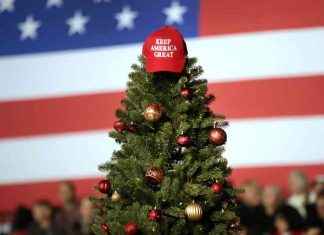Louise Hutchinson shattered gender barriers as a Chicago Tribune reporter from 1952 until 1973, rising up from a neighborhood news beat to coverage of Elvis Presley’s 1957 tour and the aftermath of President John F. Kennedy’s assassination.
"I don’t think she saw herself as a crusader or as a pioneer or an activist in the women’s movement, but she cleared a path for me and for a generation of women writers and now, editors and heads of major publications," said former Tribune financial reporter Joanne Knoch Strong.
Hutchinson, 90, died of complications from metastatic brain cancer on March 29 at Sentara Williamsburg Regional Medical Center in Williamsburg, Va., said Virginia Secretary of Administration Nancy Rodrigues, who with her husband was a longtime friend of Hutchinson’s.
A Williamsburg resident since 1993, Hutchinson had moved from Chicago to the Washington, D.C., area in 1966.
Hutchinson grew up in the Irving Park neighborhood and graduated from Schurz High School, according to a 1994 oral history recorded by the Tribune’s Bob Wiedrich. She attended Blackburn College in Carlinville, Ill., for two years before transferring to the University of Iowa, where she earned a bachelor’s degree.
After college, Hutchinson worked first for WHBF radio in Rock Island and then for WRC radio in Washington. She took a job as a reporter for the Northwest Times, a weekly newspaper on Chicago’s Northwest Side, before joining the Tribune.
As a neighborhood news reporter, her topics included a South Side pharmacist with a penchant for placing philosophical quotations in his front window and a La Grange man with a collection of 1,138 glass, Wedgwood and gold pitchers.
Newsmakers and celebrities with Chicago ties who died in 2017.
Female reporters at the time often were relegated to softer news stories. Animal stories were a mainstay — for instance, Hutchinson wrote several stories on a sextet of porpoises brought to Brookfield Zoo in 1961 — and for two years in the early 1960s, she penned "dog of the week" stories aimed at persuading readers to adopt shelter-held dogs.
"All the women who were in neighborhood news looked up to (Louise) because of the job she had and the way she carried herself," said former Tribune reporter Donna Gill. "Louise always carried herself like a great lady and she set a path for everyone else."
In 1957, Hutchinson covered a concert at the International Amphitheatre by a young Southerner whom she called a "side-burned Lothario of the rock ‘n roll set." Presley performed, she wrote, before "a shrieking mass of 12,000 teen age fans."
"There were sideburned followers of Presley in the crowd, some too young to grow sideburns. But they leaped and yelled," she wrote. "There were blue jeans and slinky cocktail dresses. Mostly, though, there was pandemonium."
Newsmakers and celebrities who died in 2017.
Hutchinson was promoted to the paper’s city room by the early 1960s, juggling harder news stories but still producing lighter fare. In early 1963, Hutchinson authored a short-lived "Letters to Louise" advice column.
In November 1963, she was dispatched to Washington to cover the aftermath of Kennedy’s assassination, with a focus on Jacqueline Kennedy. She joined the newspaper’s Washington bureau in 1966, covering political conventions and the visit by President Richard Nixon and his wife, Pat, to the Soviet Union in 1972.
She also wrote a biweekly "About Women in Washington" column from 1966 until 1969 and covered the aftermath of the attempted assassination in 1972 of presidential candidate and Alabama Gov. George Wallace.
Despite self-admitted claustrophobia, Hutchinson wrote a first-person account in 1967 of her journey as the first reporter to ride to the bottom of the ocean in the Navy’s "Alvin" midget submarine, off the coast of Massachusetts.
In 1971, Hutchinson became the first woman ever to stay overnight at the South Pole.
"The South Pole and the Antarctic are not to be remembered alone as brute scenes of giant glaciers coursing toward frozen seas nor as mountain chains poking through ice as deep as 14,000 feet," Hutchinson wrote. "The South Pole and the Antarctic are a gut feeling that cannot be conveyed. Remarkable men whose fortitude eludes description labor here."
In 1970, she was elected president of the Women’s National Press Club, which that same year voted to admit male journalists and rename itself the Washington Press Club. Retired Tribune Washington reporter Bill Kling called Hutchinson’s leadership "instrumental" in that decision.
Hutchinson won the Tribune’s top staff award for reporting, the Edward Scott Beck Award, for her 1966 coverage of presidential daughter Luci Baines Johnson’s wedding.
"On the telephone she could give Charlie Rose a run for his money. Her interviewing skills led Washington," said retired Tribune city editor Bill Anderson. "(Louise) would tell you that the man most responsible for all this was Clayton Kirkpatrick, the classy reporter who became editor. He saw her talent and that extra dimension that defines all responsible reporters."
"She was an elegant lady with a hearty laugh," said retired Tribune reporter Casey Bukro. "And she was always so cheerful and encouraging, especially to young people."
After leaving the Tribune at the end of 1973, Hutchinson stayed in Washington, working as the public information officer and spokeswoman for the Department of Justice’s civil rights division, and then as a special assistant to U.S. Rep. Robert McClory, R-Ill., in the mid-1970s.
Hutchinson later worked for several nonprofit groups and associations. From 1985 until 1991, she was the director of public information for the National Association of Children’s Hospitals in Alexandria, Va.
There were no immediate survivors.
A tea in Hutchinson’s honor is scheduled for 2 to 5 p.m. on Saturday, April 29, at Powhatan Secondary Clubhouse in Williamsburg.
Bob Goldsborough is a freelance reporter.
Our editors found this article on this site using Google and regenerated it for our readers.





